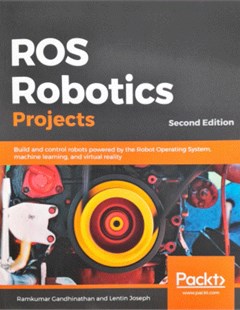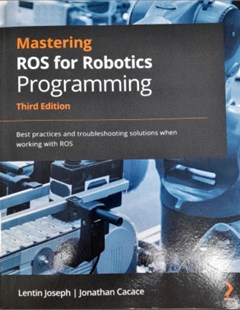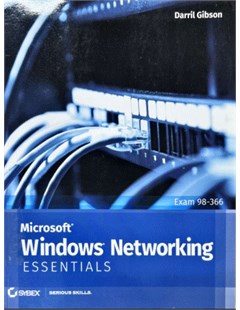ROS Robotics Projects
This book covers projects in the latest ROS distribution, ROS Melodic Morenia with Ubuntu Bionic (18.04). Starting with the fundamentals, this updated edition of ROS Robotics Projects introduces you to ROS-2 and helps you understand how it is different from ROS-1. You'll be able to model and build an industrial mobile manipulator in ROS and simulate it in Gazebo 9. You'll then gain insights into handling complex robot applications using state machines and working with multiple robots at a time.
2019
Build exciting robotics projects such as mobile manipulators, self-driving cars, and industrial robots powered by ROS, machine learning, and virtual reality
Key Features
Create and program cool robotic projects using powerful ROS libraries
Build industrial robots like mobile manipulators to handle complex tasks
Learn how reinforcement learning and deep learning are used with ROS
Book Description
Nowadays, heavy industrial robots placed in workcells are being replaced by new age robots called cobots, which don't need workcells. They are used in manufacturing, retail, banks, energy, and healthcare, among other domains. One of the major reasons for this rapid growth in the robotics market is the introduction of an open source robotics framework called the Robot Operating System (ROS).
This book covers projects in the latest ROS distribution, ROS Melodic Morenia with Ubuntu Bionic (18.04). Starting with the fundamentals, this updated edition of ROS Robotics Projects introduces you to ROS-2 and helps you understand how it is different from ROS-1. You'll be able to model and build an industrial mobile manipulator in ROS and simulate it in Gazebo 9. You'll then gain insights into handling complex robot applications using state machines and working with multiple robots at a time.
This ROS book also introduces you to new and popular hardware such as Nvidia's Jetson Nano, Asus Tinker Board, and Beaglebone Black, and allows you to explore interfacing with ROS. You'll learn as you build interesting ROS projects such as self-driving cars, making use of deep learning, reinforcement learning, and other key AI concepts.
By the end of the book, you'll have gained the confidence to build interesting and intricate projects with ROS.
What you will learn
Grasp the basics of ROS and understand ROS applications
Uncover how ROS-2 is different from ROS-1
Handle complex robot tasks using state machines
Communicate with multiple robots and collaborate to build apps with them
Explore ROS capabilities with the latest embedded boards such as Tinker Board S and Jetson Nano
Discover how machine learning and deep learning techniques are used with ROS
Build a self-driving car powered by ROS
Teleoperate your robot using Leap Motion and a VR headset
Who this book is for
If you're a student, hobbyist, professional, or anyone with a passion for learning robotics and interested in learning about algorithms, motion control, and perception capabilities from scratch, this book is for you. This book is also ideal for anyone who wants to build a new product and for researchers to make the most of what's already available to create something new and innovative in the field of robotics.
Table of Contents
Ramkumar Gandhinathan, ROS Robotics Projects, Packt Publishing, 2019
 |  |  |
| Mastering ROS for Robotics Programming | Microsoft Windows Networking Essentials |
Thứ Hai, 14:52 14/11/2022
Copyright © 2018 Hanoi University of Industry.